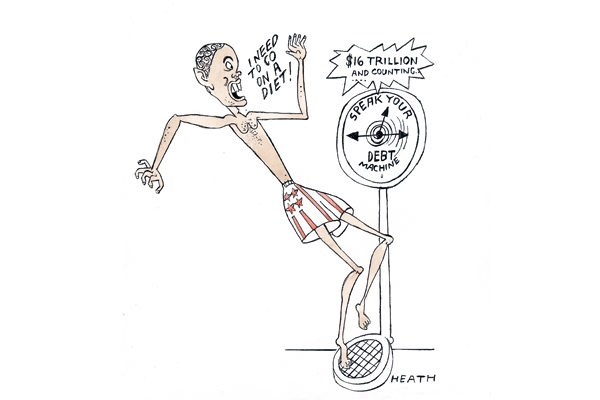Home
David Cameron, the Prime Minister, at last delivered his speech on Europe, postponed during the Algerian hostage crisis. He wanted to ‘negotiate a new settlement with our European partners’, and before the end of 2017, ‘when we have negotiated that new settlement, we will give the British people a referendum with a very simple in or out choice. To stay in the EU on these new terms; or come out altogether. It will be an in/out referendum.’ The government started trying to hurry through a Bill to change succession to the Crown. Blockbuster, the DVD rental firm, went into administration and announced the closure of 160 of its 528 shops. Tom Albanese resigned as the chief executive of Rio Tinto after the company wrote off £8.7 billion of its aluminium and Mozambique coal-mining businesses. Of the 808,000 births in the United Kingdom in 2011, the highest number since 1971, 196,000 were to women not born in the UK, according to the Office for National Statistics, with Poland, Pakistan, India, Bangladesh and Nigeria being the top five countries in which those mothers were born. Michael Winner, the director of the Death Wish films, died, aged 77.
Mr Cameron said that the terrorist hostage-taking in Algeria in which six Britons died would ‘require a response that is about years, even decades, rather than months’. He agreed to send limited British forces to Mali. Prince Harry, in an interview before he left his four-month tour of service in Afghanistan, confirmed that he had set about killing some of the enemy. ‘Everyone’s fired a certain amount,’ he said. ‘If there’s people trying to do bad stuff to our guys, then we’ll take them out of the game.’ The army, as part of the government’s decision to reduce its numbers from 102,000 to 82,000 by 2017, announced it would send out 5,300 redundancy notices in June.
It snowed in most of the United Kingdom and on one day more than 5,000 schools were closed. Four mountain walkers died in an avalanche in Glencoe. The cancellation of many flights from Heathrow left hundreds spending the night at the airport. Heathrow Airport Holdings, formerly called BAA, is selling Stansted airport to the owner of Manchester airport for £1.5 billion. Sir Stelios Haji-Ioannou, who opposes the expansion of easyJet, which he founded, said he would sell more of his shares in the airline if it bought more aeroplanes. From Hythe to Canterbury, people complained of a smell of rotten cabbages when methanethiol, the chemical added to natural gas to make it smell, escaped from a factory in Rouen and drifted over the Channel.
Abroad
Islamist terrorists, including two Canadians, took foreign workers hostage at a gas plant at Tigantourine in Algeria, 16 miles from the town of In Amenas, in the Sahara near the border with Libya. The plant was run by BP jointly with the Algerian state oil company Sonatrach and Norway’s Statoil. The next day, as the terrorists were moving hostages, some with explosives strapped to them, Algerian aircraft attacked the vehicles carrying them, with many deaths. Eleven terrorists reached the refinery compound with seven hostages. All these were killed two days later when Algerian forces ended the siege. In total, 37 foreigners and one Algerian were killed, including three Britons. Twenty-nine terrorists were killed, with three taken prisoner, and 685 Algerians workers escaped. Five hostages were missing presumed dead, including three Britons. Mokhtar Belmokhtar, aged 40, the one-eyed Algerian Islamist kidnapper, who had fallen out with al-Qa’eda in the Islamic Maghreb, said that he was behind the attack.
French and Malian troops entered Diabaly and Douentza, from which Islamist forces had fled after French bombing. At an economic summit in Saudi Arabia, President Mohammed Morsi of Egypt said: ‘We’ll never accept military intervention in Mali, because this will exacerbate conflict in the region.’ Armed men seized a tanker with 5,000 tons of oil off Abidjan, Ivory Coast.
Barack Obama, at the inauguration of his second term as President of the United States, said: ‘A decade of war is now ending. An economic recovery has begun. America’s possibilities are limitless.’ In a general election Israelis gave Benjamin Netanyahu’s party fewer seats. In Syria, there were long queues in freezing temperatures for bread, both in government-controlled Damascus and rebel-controlled Aleppo. Russia sent two aeroplanes to Beirut to fetch about 80 citizens who had fled the war in Syria, where about 30,000 Russians are living. The film Skyfall opened in China, without the scene in which James Bond kills a security guard in Shanghai. –CSH






Comments